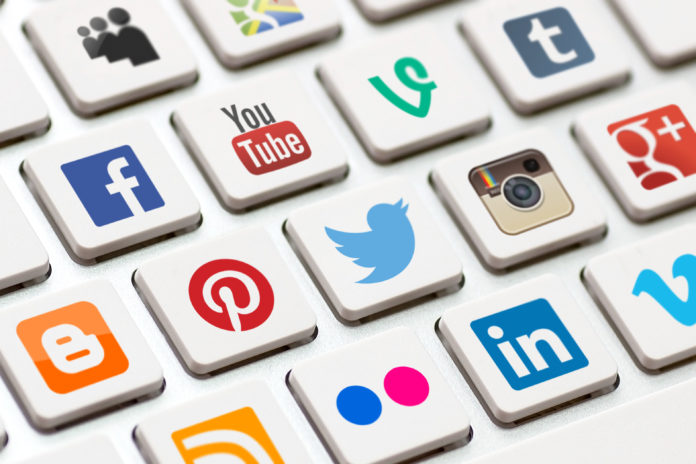Ever since the Industrial Revolution (mid-1840s), there was a fear of business becoming too powerful, and running the world. Wealth has ALWAYS run governments, but the rise of the ‘industrial’ class seemed to narrow that focus to factory owner vs factory worker. In fact, a major plank of the Democrat party has been the ‘us against them’ dynamic, with ‘us’ being the worker (represented by Democrats) and ‘them’ being big business (represented by Republicans). And there was some truth to that, especially prior to 1890, when real anti-trust legislation passed. How does that scenario relate to current times? Let’s dig.
Employers have some distinct advantages over workers. Workers depend upon the wages earned from employers for their very lives—how they live, what they eat, what they wear, how much they save, etc. But prior to the 1890s, business was the hammer and the worker was the nail. Sweatshops were common, along with terrible wages, incredible hours, and unsafe working conditions. Company stores, places workers could ‘buy’ things they needed on company credit, often resulted in an economic version of true slavery, especially in mining towns, where there were few alternative places to work. On a national scale, big railroad companies bought small ones; big banks bought small banks; Big oil companies bought out small drillers. The net effect of this process: a few HUGE nationwide entities, that could push and dictate local, State, and Federal governments around.
The Sherman Anti-Trust Act of 1890 began the process of changing that landscape. Central to that act was the outlawing of a ‘monopoly’—where a big business captures so large a share of a market as to own that market, without meaningful competition. Without competition, consumers HAVE to deal with the monopoly entity, which tends towards price fixing and poor service, since there are no alternative sources for that product. Think DMV for any product—there are no incentives to improve anything, since the buyer can’t take their business elsewhere. The Sherman Act was used n 1911 by President Theodore Roosevelt to break up John Rockefeller’s Standard Oil Company into three dozen separate, competing companies (eventually, those companies became EXXON, Mobil, Amoco, Chevron, and many more). In the next few decades, many monopolies were dissolved: IBM, Microsoft, AT&T. Along with new government regulations for workplace safety (OSHA) and labor organization (Wagner Act), things got better for both consumers and workers. Business still had the advantage over workers, but it was quite a bit less than before. But the one thing that remained: the fear that business would rule over government, just on a smaller scale than before.
Enter the Technology Age. Prior to the mid-1980s, personal computers (outside of minor kit and game machines) simply did not exist. Cell phones were also in their infancy, and they were, in effect, cordless phones with long ranges—no ‘smart’ applications were supported or available. Email and texting were just poking their respective heads out—mostly within a few businesses. That all changed, in a big way, with the marketing genius of Apple Corporation. Apple didn’t invent the MP3 player, cell phone, or personal computer. But they made owning one fun, easy to use, and COOL! The FIRST iPhone was released in 2007. Now, 14 years later, you’d be hard-pressed to find anyone older than 15 that DOESN’T own a smart cell phone and home computer, both connected to this wonderful medium of data exchange: the Internet! In the 2020s, the Internet is now the main vehicle for information exchange: news, emails, texting, videos, games, social networks, search engines, shopping, even job and message boards. The social network companies, along with Apple, are the largest corporations in history. Apple and Google are TRILLION dollar companies, Facebook and Twitter are not far behind. Amazon company provides a world-wide network for shopping from home over the Internet. Amazon’s sister company, AWS (Amazon Web Services) contains the web servers that host a huge portion of Internet traffic. Smart cell phones are now powerful, handheld personal computers—with more capability than large mainframes just a decade ago. Each operating system (Apple ios, Google, Android, etc.) has ‘apps’—application programs, that make using third-party software (games, email, texts, social networks, etc.) easier. Each has their own ‘app store’ to obtain these apps—some are free, others have one-time fees.
Remember the monopolies of the pre-1890s? The Big Tech companies now have the role of Standard Oil of 1890. Google, Facebook, Twitter, and Amazon together nearly OWN the Internet! There are small competitors to each in their own areas, but the big dogs overwhelm everyone else. Now for the fun part: if the Big Tech companies collude together, they can literally change how society works—or doesn’t work at all! And we are seeing exactly that in 2021. Oddly enough, it is not the mean, evil Republicans that are the beneficiaries of this collusion. The Big Tech consortium is ideologically aligned with the Democrats—those folks that previously championed the WORKER, not the evil, mean corporations! The Democrats scare objects, the Republicans, are now the targets of the monopolies.
The shape of this alignment is quite evident. Now that the Democrats have small majorities in the House of Representatives and the Senate, and are about to seat their candidate as President, Big Tech no longer fears reprisals from government at all. This has emboldened them to REMOVE the accounts of the sitting President, many other Conservative folks, and any Conservative groups they wish. Amazon decided to end its hosting service with a Twitter competitor, Parler, with one day notice. Parler’s crime? Bad ideology—Parler doesn’t restrict its users enough, instead believing in freedom of speech content. The ‘apps’ stores can remove the Parler app, making using their platform more difficult for the end user.
Democrats in the House have proposed ‘black-listing’ any company that hires anyone from the former administration. Social media has taken the approach that anyone not aligned with their POLITICAL thought should be punished, if not removed from their platform entirely. Facebook and Twitter employ search algorithms, and if your content includes unwanted words or phrases, you’re toast.
If the US does not have a ‘Sherman Anti-Trust Bill’ similar mechanism for Big Tech, I do not think I am engaging in hyperbole by saying this is the end of our Constitutional republic. If you can get FIRED for your political thoughts, the 1st and 5th Amendments do not exist. If online retailers can stop your ability to purchase weapons and ammunition, other than walk-in stores (rare that they are), the 2nd Amendment does not exist. If your political ideology can get you shut down from the Internet, the 4th Amendment does not exist. See a trend here? And if you feel mistreated by Big Tech? So what? They are private companies, that are protected from liability lawsuits by immunity granted by Congress. That whole ‘business controls government’ dynamic is here, folks—it’s just different players than were promised. And it will not go away on its own.
Welcome!Log into your account

























